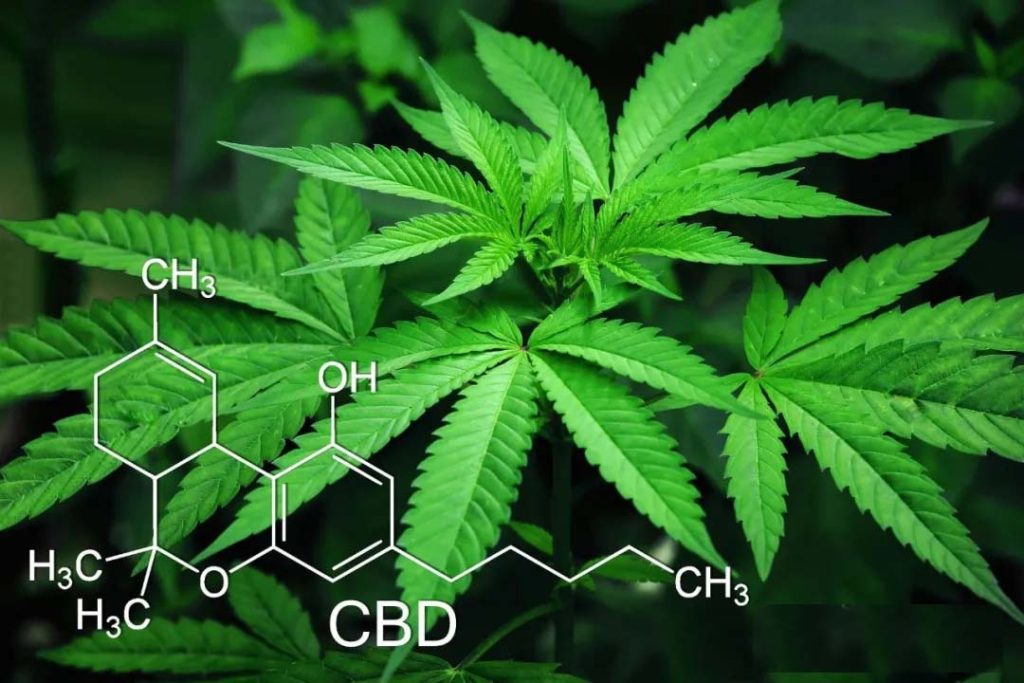CBD is a compound in cannabis, one of the 113 cannabinoids found in cannabis plants, many of which are also being studied for their potential health benefits. Unlike the main psychoactive compound THC in cannabis, CBD has no psychoactive activity and can be safely used in living organisms.
Cannabis is a plant with a long history, multiple dimensions, and sometimes controversial. Its versatility and practicality have propelled marijuana into various industries and products, especially in the medical field. Today, we will mainly introduce the 8 most common benefits of CBD to the human body.

#1. Pain Relief
In 1997, a study published in the European Journal of Pharmacology showed that the endocannabinoid system is closely related to the treatment of pain.
CBD can help relieve pain in a variety of ways. First, CBD can temporarily block the absorption of anandamide, a chemical that helps reduce pain signals in the brain. This temporary increase can have several effects, one of which is reducing the sensation of pain.
Secondly, CBD is proven to be a powerful anti-inflammatory. By reducing inflammation caused by conditions such as arthritis, CBD can also reduce painful symptoms caused by the disease.
#2. Preventing Seizures
Epilepsy is a common disease in the human population, with main symptoms including spasms, convulsions, tremors, and physical stiffness.
One of the most famous medical uses of CBD is its ability to help control seizures, tremors, seizures, and spasms.
Other studies have also shown that both CBD and THC can help manage spasms caused by multiple sclerosis, and studies have shown that CBD can help treat seizures and tremors caused by Tourette syndrome.
#3. Reduce Inflammation
The anti-inflammatory effect of CBD is considered one of the main reasons why this compound can be used to treat various diseases.
The anti-inflammatory effect of CBD is related to its ability to interact with receptors in immune cells. CBD interacts with CB2 receptors typically located within immune cells. By activating these receptors, CBD can trigger various immune responses. One of these reactions is to resist inflammation.
Chronic inflammation is a characteristic of diseases such as arthritis, MS, and irritability of the intestine. In some cases, this inflammation may be caused by a malfunction of the immune system leading to its attack on healthy cells. By helping to reduce inflammation, CBD can help alleviate pain and other symptoms such as IBD, arthritis, etc.
#4. Relieve Anxiety
Many studies have shown that CBD can help treat symptoms of various mental illnesses, including anxiety. In humans, anxiety and stress can cause us to bite our nails, walk around, or become a bit shaky.
It has been proven that CBD can help alleviate anxiety and thus alleviate these symptoms. Typical anxiety drugs tend to target a serotonin receptor called 5-HT1A in the body.
By targeting these receptors, anti anxiety drugs can help temporarily increase serotonin levels in the brain. This can improve emotions and temporarily alleviate anxiety or fear. Research has shown that CBD may act in a similar way and temporarily increase serotonin levels in the brain.
#5. Antiemetic
Nausea and vomiting are very common symptoms in both humans and some mammals. It may be the result of a specific condition, or it may be caused by treatment or medication such as chemotherapy. Nausea and vomiting often lead to decreased appetite, rapid weight loss, dehydration, fatigue, and more.
CBD is a successful antiemetic that can control nausea and vomiting, as well as stimulate appetite. Interestingly, it seems to be achieved by stimulating the 5-HT1A receptor, which can help alleviate anxiety. By activating this receptor, CBD can significantly alleviate nausea and suppress subsequent vomiting reflexes.
The study also suggests that prolonged stimulation of the CB1 cannabinoid receptor in the brain can help alleviate nausea and vomiting. Most importantly, CBD does not seem to cause any side effects similar to traditional antiemetic drugs.
#6. Fighting Cancer
Cancer and malignant tumors can be fatal in many cases. So far, treatment has typically focused on slowing down tumor growth while alleviating pain and other symptoms.
The common treatment for cancer and tumors is chemotherapy. Chemotherapy can produce various side effects, including fatigue, drowsiness, loss of appetite, vomiting, diarrhea, etc.
The latest research shows that cannabinoids (such as CBD) also have anti-cancer effects. More and more research is exploring how cannabinoids can help slow down the growth and spread of cancer, and even reduce the size of tumors.
A study published by researchers from the University of Naples Federico II in Italy suggests that CBD can help prevent colon cancer in rats by preventing the occurrence, development, and spread of malignant tumors.
#7. Promote Homeostasis
Homeostasis is best described as the normal functioning of the body. It occurs when our bodies are in a state of balance and ensures that all of our biological systems are functioning at their maximum. However, when disease occurs, this balance is thrown off.
New research shows that the endocannabinoid system plays a key role in maintaining this balance. Therefore, researchers believe that by stimulating the endocannabinoid system, cannabinoids such as CBD can help promote homeostasis in the body.
#8. CBD And Sex
Research has shown that the amount of marijuana used can affect a person’s sexual experience. In a study, 59% of users believed that smoking a cigarette would increase sexual pleasure. However, less than half (39%) of people believe that consuming more than one marijuana can provide any further enhancing effect, and high doses of marijuana have been used as sex inhibitors in India.
It is currently unclear whether marijuana use will affect the quality of orgasm, as more than half of male consumers and a lower proportion of female consumers indicate that marijuana can enhance their orgasm. Research on the impact of marijuana use on sex has shown little other significant physical improvement.
The Mechanism of Action of CBD
Cannabidiol (CBD) and tetrahydrocannabinol (THC) are the two most well-known and extensively studied cannabinoids. THC is the reason why many people associate marijuana with pleasure, while CBD is a non-toxic and non pleasure inducing ingredient that you may have seen in oils, gummies, beverages, and other medical products.
Research shows that CBD interacts with the body through the endocannabinoid system ECS. The ECS is a biological system present in all mammals and is involved in managing a wide variety of biological processes, including memory, sleep, immune responses, and more.
It is mainly composed of two types of cannabinoid receptors (CB1 and CB2). These receptors are designed to interact with endocannabinoids (cannabinoids naturally produced by the brain). However, they can also interact with plant-derived cannabinoids such as CBD, causing a variety of reactions throughout the body.
Choose The Correct CBD Dose
Cannabis compounds have biphasic properties. This means that low and high doses of the same dose can have opposite effects. Small doses of cannabis tend to be stimulating, but large doses of CBD have no known adverse side effects at any dose.
But drug interactions can cause problems. Too much CBD may not be as therapeutically effective as a moderate dose. Cannabis therapy is often a “less is more” approach.
When it comes to CBD dosage, everyone’s situation is different, and there’s no firm evidence on how much CBD someone should take to achieve certain effects or health benefits.
Determining the right CBD dosage depends on factors such as your weight, metabolism, and the specific condition you’re trying to address. It is generally recommended to start with a low dose and gradually increase the dose until you find the optimal dose for your needs. For more guidance on how to find the right dose, check out our article on how to calculate the perfect CBD dose.
